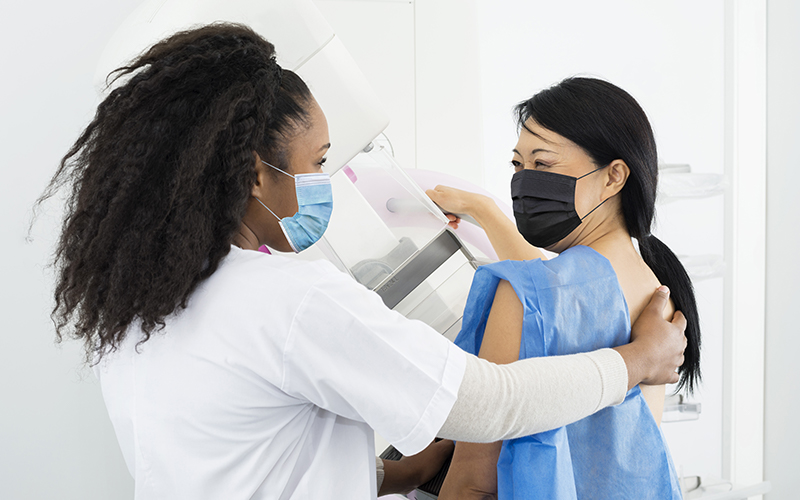
by Amanda Zorn, MD, Kent Primary Care
The COVID-19 pandemic disrupted most of our routines and schedules over the past year, and unfortunately, many recommended cancer screenings were postponed. Now that we know so much more about how COVID-19 is spread, our clinics and other services have been set up with safety measures to make routine cancer screenings a safe option. National Women’s Check-Up Day was earlier this month, making it a good time to review the importance of cancer screening and take a look at current cancer screening guidelines for women.
The key goal of cancer screening is to aid the early detection of cancers or pre-cancers to prevent disease from progressing. With early detection, treatment is less invasive and more likely to be successful.
There are three categories of cancer screenings recommended for females at average risk.
Cervical Cancer Screening
Cervical cancer screening programs began in the 1950s and played a part in the 70% decrease in the rate of cervical cancer within the following decades. The human papillomavirus, also known as HPV, is the most common cause of cervical cancer: The vaccine given as part of the recommended schedule for children also helps to reduce its rate of infection. Current recommendations are to start screening with a pap smear at age 21 for women who have been sexually active. Screening for cervical cell abnormalities should be done every three years from age 21-29. From age 30-65, screening for cervical cell abnormalities and the presence of the HPV virus should occur every five years. If abnormalities are found, different interventions or more frequent pap smears may be recommended.
Breast Cancer Screening
One in eight women will be diagnosed with invasive breast cancer in their lifetime, making screening a valuable tool for early detection. For women at average risk of breast cancer, by age 50 it’s recommended to begin mammogram breast cancer screening yearly or every two years, and to continue through age 75. Screening may begin as early as age 40 based on personal preference and individual risk factors. Family and personal history may alter a woman’s risk, and some will be referred to see a genetics specialist to discuss genetic testing, or to plan a personal screening schedule.
Colon Cancer Screening
Due to a rising rate of the disease in younger adults, the recommended age to start screening for colon cancer has just been lowered to age 45 for both men and women at average risk of the disease. Screening from age 76 through age 85 is based on personal preference, individual risk factors, overall health, and prior colonoscopy findings. Screening can be done with stool-based tests (fecal immunochemical test [FIT], stool DNA testing) or a visual exam of the colon (colonoscopy or sigmoidoscopy). The colonoscopy is the most recommended study as it is more thorough and allows the provider to remove polyps for further testing as needed. A normal colonoscopy should lead to re-screening in 10 years. Stool-based tests should be completed more often, yearly for the FIT test.
Every woman has a unique set of risk factors for different cancers. Your primary care physicians at Valley urge you to schedule an annual visit to talk about the cancer-screening schedule that is best for you.
Of note, the terms “woman/women” have been used in this article to describe genetic females, however, it is important to consider transgender and gender nonbinary individuals when discussing appropriate cancer screenings.

